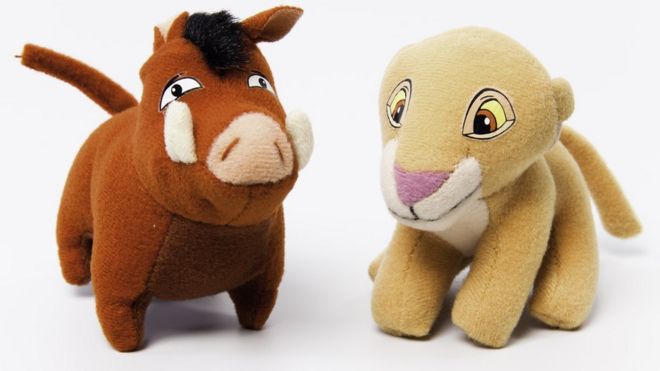“Hakuna matata” means “no worries” or “no problem,” but there’s nothing sedate about this story.

The Swahili phrase, made popular by Disney’s 1994 movie The Lion King, is a subject of contention at the moment. Movie production company Disney filed to trademark the phrase the year of the movie’s release and it was registered in 2003. Under the law, no one is allowed to use it for commercial purposes — like printing on a T-shirt, for example.
Here's the Hakuna Matata trademark petition https://t.co/49lhpDqjNs
— Nelisa Ngqulana (@Neli_Ngqulana) December 18, 2018
With the live-action version of the movie coming up in 2019, interest in the franchise and its content has been reinvigorated. A Zimbabwean activist, Shelton Mpala, says the trademark is cultural appropriation, and argues that a culture’s language cannot be patented.
Rejoice in the Lord ALWAYS.
Do not be anxious about anything,but in EVERYTHING in prayer & petition,with thanksgiving present your requests to GOD | Philippians 4:4 Hakuna Matata
Blessed @Jentezen @bishopharrelljr come let us rejoice in the LORD in
Nakuru | KENYA | Invitation pic.twitter.com/OqHij97B1H— Felix Owino (@felixbevano) December 18, 2018
Mpala launched a Change.org petition to get Disney to abandon its trademark on the phrase, saying it’s akin to “colonialism” to have a legal stranglehold on the words. (As of this writing, it has more than 40,000 signatures.)
There’s a petition for Disney to drop its trademark of "Hakuna Matata"https://t.co/ww7zgyRpkU
— 102.7 KIIS-FM (@1027KIISFM) December 19, 2018
Titled “Disney robs Swahili of ‘Hakuna Matata,’” the petition claims Disney can’t trademark terms “they didn’t invent.” It reads in full:
Disney has trademarked the Swahili phrase “Hakuna Matata”.
While at it, you may also consider adding "Mount Kenya Mafia" to the petition as it also registered in US as a trade Mark for clothes.#hakunamatata https://t.co/VBvpKvDSBT https://t.co/Ajj2jjYAAA
— David Njuguna (@dnjuguna) December 12, 2018
I liken this to colonialism and robbery, the appropriation of something you have no right over. Imagine, “If we were to go that route, then we owe the British royalties for everyone who speaks English, or France for when we speak French.”
never heard hakuna matata before the Lion King
— Orlando Peña H. (@ophernandez81) December 18, 2018
Join us and say NO to DISNEY or any corporations/individuals looking to trademark languages, terms or phrases they didn’t invent.

“Hakuna matata” is a Swahili language phrase from East Africa; translate, it means “no trouble”. The word “hakuna” means “there is not here” while “matata” means “problems”.
Thousands sign petition calling on Disney to release trademark on 'Hakuna matata,' accusing them of cultural appropriation https://t.co/oUqc7VCxZu pic.twitter.com/2z2VARXKZl
— KRON4 News (@kron4news) December 18, 2018
Hakuna Matata has been used by most Kiswahili-speaking countries suchs as Tanzania, Kenya, Uganda, Rwanda, Burundi, Mozambique, and the Democratic Republic of the Congo.
Disney can’t be allowed to trademark something that it didn’t invent.
A Zimbabwean launched the petition to stop Disney from exercising their trademark on the Hakuna Matata phrase.
Meanwhile, Tanzanians who use Swahili most are banning their musicians from expressive arts!
And in Kenya where the phrase originated, well, We have the handshake!— resurgam (@munyonyosam) December 18, 2018
“A lot of Swahili speakers have been utterly shocked, they had no idea this was happening,” Mpala told the sources. “Growing up in Zimbabwe, I always had an understanding that a culture’s language was its richness.”
Even with direct flights from Kenya to the US, we cannot promote tourism in America by selling T-shirts written "Hakuna Matata Kenya" simply because only Disney can use "Hakuna Matata"
— All Eyez On Me (@PITAMINOR) December 18, 2018